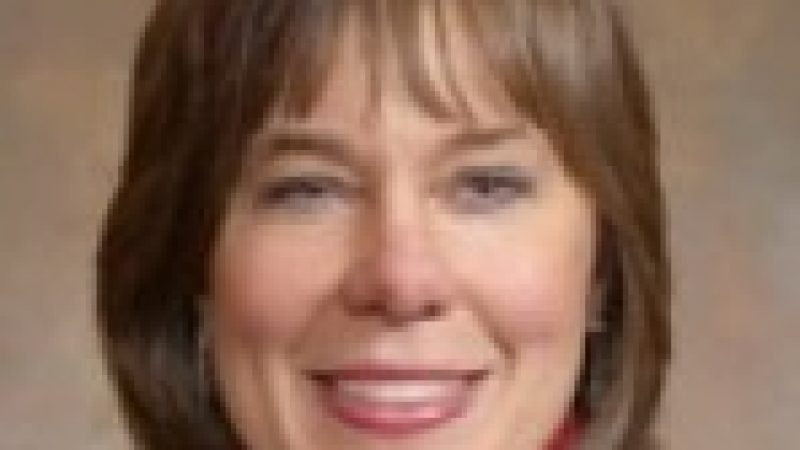Ag Secretary Sheila Harsdorf is highlighting her agency’s work in helping Wisconsin farmers and producers expand into more export markets as the Trump administration’s ongoing trade war continues.
The former state senator, who was tapped to head the Department of Agriculture, Trade and Consumer Protection in November, told WisPolitics.com in an interview she and Gov. Scott Walker “have communicated the importance of trade to the administration,” particularly for Wisconsin agriculture.
Still, she wouldn’t say whether the agency has asked the administration for waivers to exempt certain industries from the tariffs.
“Obviously there is a concern about the impact on individual commodities, and the fact remains that trade is important to Wisconsin producers and the industry; and we will continue to work to have our voice heard,” she said.
Harsdorf characterized the federal Department of Agriculture’s recently proposed $12 billion in emergency aid to farmers hurt by the government’s trade disputes as “not a solution but more or less to help the challenges within the industry.”
“While the administration is working on negotiating fair trade agreements, I believe that they also have recognized the financial challenges in the industry, and I believe that’s why they proposed the $12 billion of assistance,” she said.
Harsdorf also noted the importance of trade to a series of commodities, including cranberries, ginseng, soybeans and dairy, though she didn’t weigh in on which Wisconsin industry she views as the most threatened under the current tariffs.
But she emphasized the agency’s work to expand opportunities to local producers, including the agency’s first “reverse buyers mission.” During the event hosted by the state earlier this month, more than a dozen cheese buyers from South and Central America, Mexico and the Middle East visited Wisconsin to become acquainted with area cheese makers and sellers and build new markets.
“We have the opportunity to reach out, and we will continue to build upon that, reaching out to other countries to determine what commodities we have that they are interested in. And it’s really I think a big part of building relationships and developing those relationships,” she said.
In her first interview with WisPolitics.com since taking over at DATCP nine months ago, Harsdorf also stressed the challenge Wisconsin farmers and processors are facing in the form of low prices over a “very long, extended period of time.”
She said one way DATCP can help is through maintaining and building more market opportunities for the “great quality products and diverse products we produce right here in Wisconsin.”
Meanwhile, Harsdorf said the agency is continuing discussions following Walker’s call to transfer oversight of concentrated animal feeding operations, or CAFOs, from the Department of Natural Resources to DATCP.
Walker in October pledged to work with lawmakers and the federal Environmental Protection Agency to make the shift. The guv had previously included a provision in his 2017-19 budget calling for a study on whether DATCP could take over regulation of CAFOs, although the Joint Finance Committee removed it during its review of non-fiscal policy items.
Supporters have said the permitting of large farming operations should be under DATCP’s purview, while critics, including environmental groups such as Midwest Environmental Advocates and Clean Wisconsin, argue the move would shift oversight to an agency that’s “charged with promoting agriculture” and worry about the lack of public input thus far.
Harsdorf said her agency and DNR have been meeting monthly to discuss the transfer and has already had some “initial discussions” with the EPA. But she said because the move is a directive from Walker, details about the transfer wouldn’t be included in DATCP’s budget request.
And she said it’s up to the guv to decide if the transfer would be in a standalone bill or included as part of the budget.
Asked for comment, Walker spokeswoman Amy Hasenberg pointed to the rural agenda announcement from last fall that noted he’ll “work with the Legislature and EPA to transfer regulatory authority over large farms” to DATCP.
Regarding concerns from environmental groups that they haven’t been involved in discussions surrounding the transfer, Harsdorf noted that regardless of whether the transfer proceeds as a bill or wrapped up in the broader budget, stakeholders writ large will have the ability to weigh in publicly.
“Once something is proposed, that would be open for public discussion and a comment period, possibly hearings,” she said.
Hear the audio:
https://soundcloud.com/wispolitics/180824harsdorfinterview/s-X9Xmp




